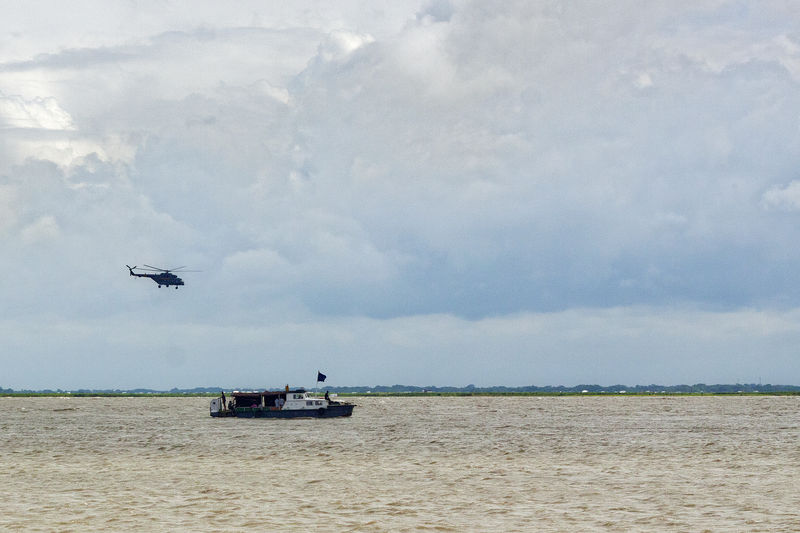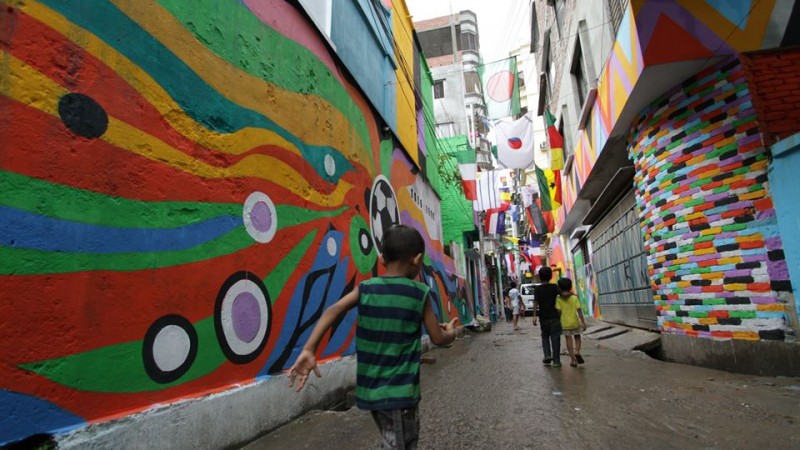The Bangladeshi education system is divided into three different branches. These branches are: a) The English Medium, b) The Bengali Medium, and c) The Religious Branch. Many of the school and colleges are Government or semi Government. Tution fees are heavily subsidized in full Government institutions but they lack sufficient infrastructures. Students are free to choose between government or private institutions provided that they have the means.
The detailed structure of the mainstream education system in Bangladesh can be found
here:
But the problems of this system are:
1. Almost all of the funding of Govt. mainly contribute to the salaries of the teachers of the Govt. & semi Govt. educational institutions. There are very nominal budget for sports facilities or other developments of school. Good quality private schools do not have that problem because they impose much higher fee to students to cover up these costs. But many of these private schools are out of reach of lower middle class or poors.
2. Enrolment at primary schools is only 77%. That means, 23 percent of all children of Bangladesh aged 6-10 do not have access to primary education. Many of them drop out of school as they progress.
3. Govt. educational Institutes have limited seats for students at secondary level. Private Institutes are there to fill the gap but are costly and only wealthy families can afford.
4. There is no mechanism for assessing quality of the primary students. SSC or HSC examinations are standardized, but no such assessment before 10th class.
5. There are controversies regarding the curriculum and the authorities of the religious educational institutions.
6. Education imparted at Govt. funded universities have little relevance to the needs of the economy and job market (absence of adequate technical or professional faculties).
7. Many university graduates, produced at considerable cost to the society, (public universities being almost entirely state financed with little sharing of costs by the beneficiaries), have to remain unemployed for a considerable period of time before they find employment often in areas outside their fields of study.
In the view to overcome such problems, I think Bangladesh can contemplate on changing its education system. One model can be the German education system, which is stated elaborately
here:
In brief the German system features:
1. Pre-school and primary education up to class 4.
2. After Class 4 they phase out to four categories of schools according to the merit, class 5 being the orientation phase irrespective of school type.
3. Hauptschule and Realschule are for pre-vocational or technical students. Gymnasium is for students willing to go to tertiary level of education (i.e. Universities). After the 10th grade the four schooling systems have the exam "Abitur".
4. In the second tier of education there is technical school and on the job training phase. After 12th class they end education and go for a job. For the students willing to go to Universities go to Gymnasium.
5. In the third tier there are Universities and other technical higher educational institutes.
In this system students are classified into different kinds of schooling according to their merit well in advance (in 5th grade). So a student does not have to study higher math in 9th or tenth grade if he does not want to study science in higher classes or go to University.
For a poor country like Bangladesh, the Govt. cannot simply afford to ascertain higher education for everybody through subsidized Govt. Institutes, which is also not required. Instead Govt. can establish more vocational institutes where students passing SSC or say HSC can study for two years plus one year on the job training, which will qualify them for a market oriented job. More efforts are needed to keep adequate budget to ensure primary education for maximum number of children eligible for school. There should be one central examination after 5th grade to classify the students for different categories of school according to their merit.
There is scope for many discussions and contemplation on this subject. But it is disheartened for the Bangladeshi People that the ruling governments spend their time and energy in the unnecessary affairs like changing political history in the curriculum according to their liking.






























